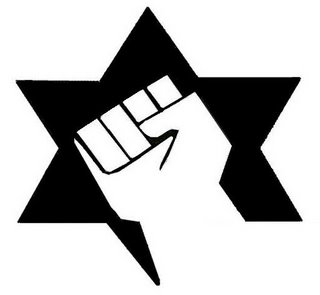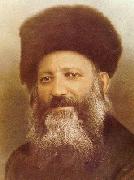
BS"D YESHIVAT HARA'AYON HAYEHUDI
Jerusalem, Israel
HaRav Yehuda Kroizer SHLIT"A, Rosh Yeshiva
PARSHAT CHUKAT
5 Tammuz, 5766/30 June-1 July, 2006
The Cana'anite king of Arad heard that Israel had come by the route of the spies, and he warred against Israel and captured a captive from them.
There is nothing new under the sun, and as our Rabbis have taught us, inevery week’s parsha we can see today’s current events unfolding. It is for that reason that this week’s news from Israel of the two kidnappings, of soldier Gilad Shalit and of yeshiva bochur Eliyahu Asheri, is so chilling.
The parsha teaches us that after the death of Aharon Hacohen, the clouds of glory, which protected the Jews in the dessert, disappeared, leaving them open for attack, and so, the king of Arad came to attack Israel. In reality, this was none other than the Amalek nation, but in order to trick Israel they changed their language so that Israel should pray to Hashem to give the Cana'anities into their hand, and being that they were the Amalek nation the Jewish people's prayer would not affect them. It was during this battle that the Amalakites were able to capture slave women from Israel. From here we see just how frightened the nations are of a Jew praying to His G-d.
The Response
And what was the response of the Jewish people, under the leadership of Moshe at the time, to the fact that a slave woman was captured? One might argue that it’s only a slave woman, not really someone who is part of the Jewish people. Yes, there were rabbis who tried to say that "pikuach nefesh" - danger of life - overrides the commandment of saving this slave. Why should Jewish soldiers have to die in battle for her? This, though, was not the response of the authentic Jewish way. "And He delivered the Canaanite and segregated them and their cities." Rashi tell us that the Jews segregated them through killing them all!
The Canaanites in their wildest dreams could not have foreseen such a fierce response by the Jews, the fact that the Jews would mobilize all of their forces just to save a slave, but such was the Jewish response. One thing was for sure, that the Cana'anite/Amalek would never again kidnap a Jew, since they were now all dead! But the mere fact that the Cana'anite had the gall to take a Jew, or in this case, Jewish property, was a great Chilul Hashem. When you have a Chilul Hashem you do not ask questions or sit around, but you immediately wipe it out.
And Today...
And today: What is the response of the Jewish government who sits in Zion, as they watch two good Jewish boys being kidnapped by the low-life Arabs? The army gathers its troops at the Gaza border, the Air Force is called in and bombs bridges, open fields are blown up and the electricity is shut down for a good number of hours. A far cry from what our ancestors did to the Canaanites, leaving them all dead.
One must understand that unless a strong response is brought upon them, it will only ensure that this will continue to happen in the future. As long as they all do not pay the price of this great Chilul Hashem, they will believe that they only have to gain from their actions.
This is what the Parsha is talking about, when it says this is the "Chukat" - the law - the law of purity, the laws of how to clean oneself from "tuma" - impurities- impurities that are on us, and impurities that we face in our Land. They must be removed from all of our sacks!
With love of Israel,
Levi Chazen











